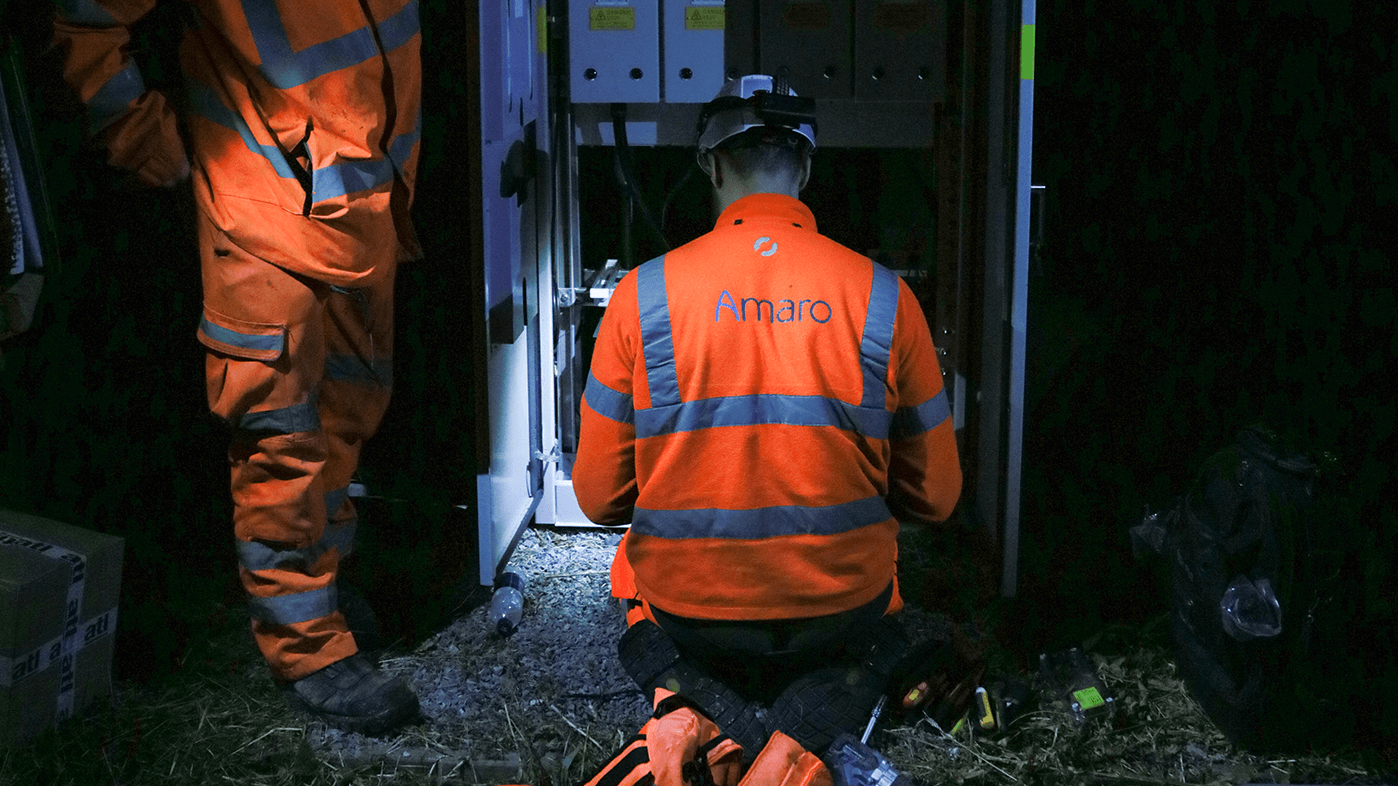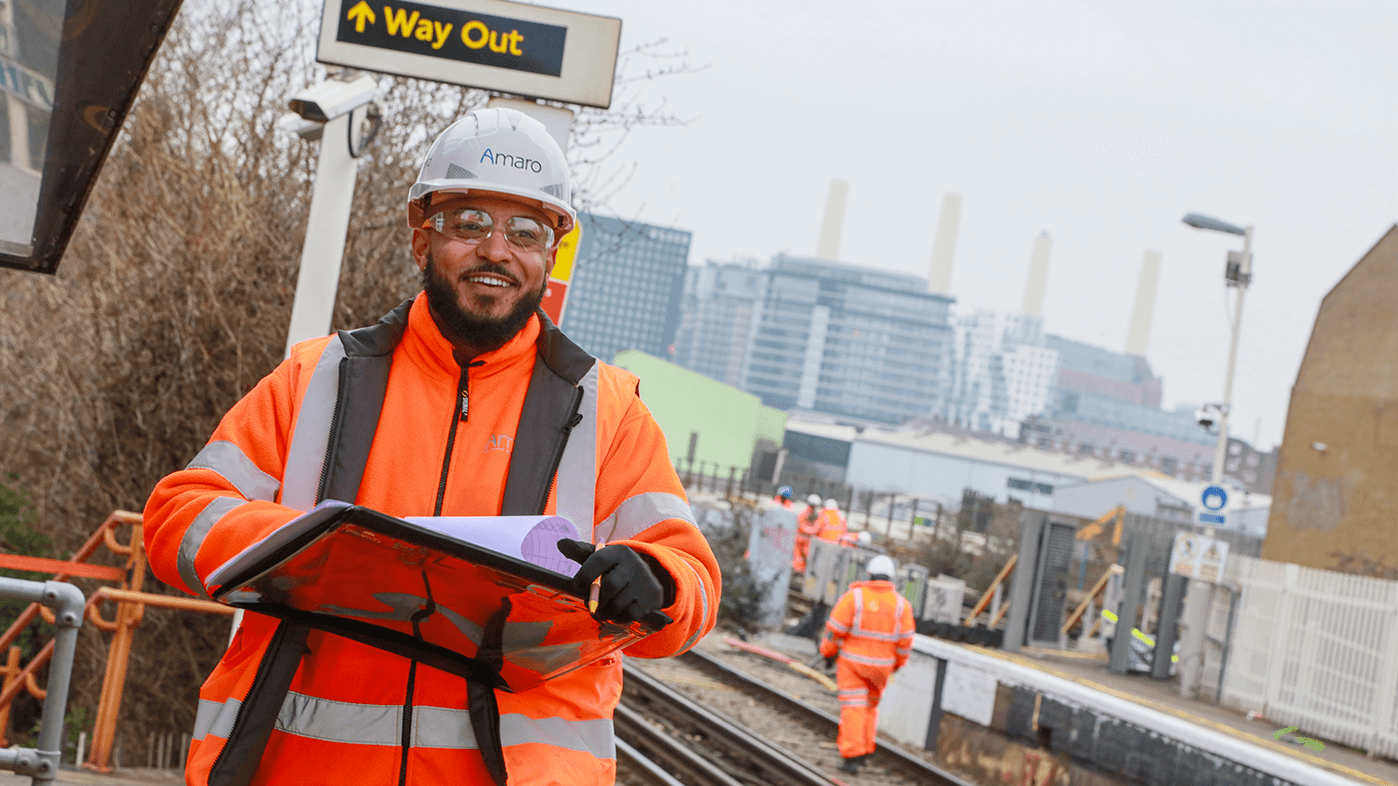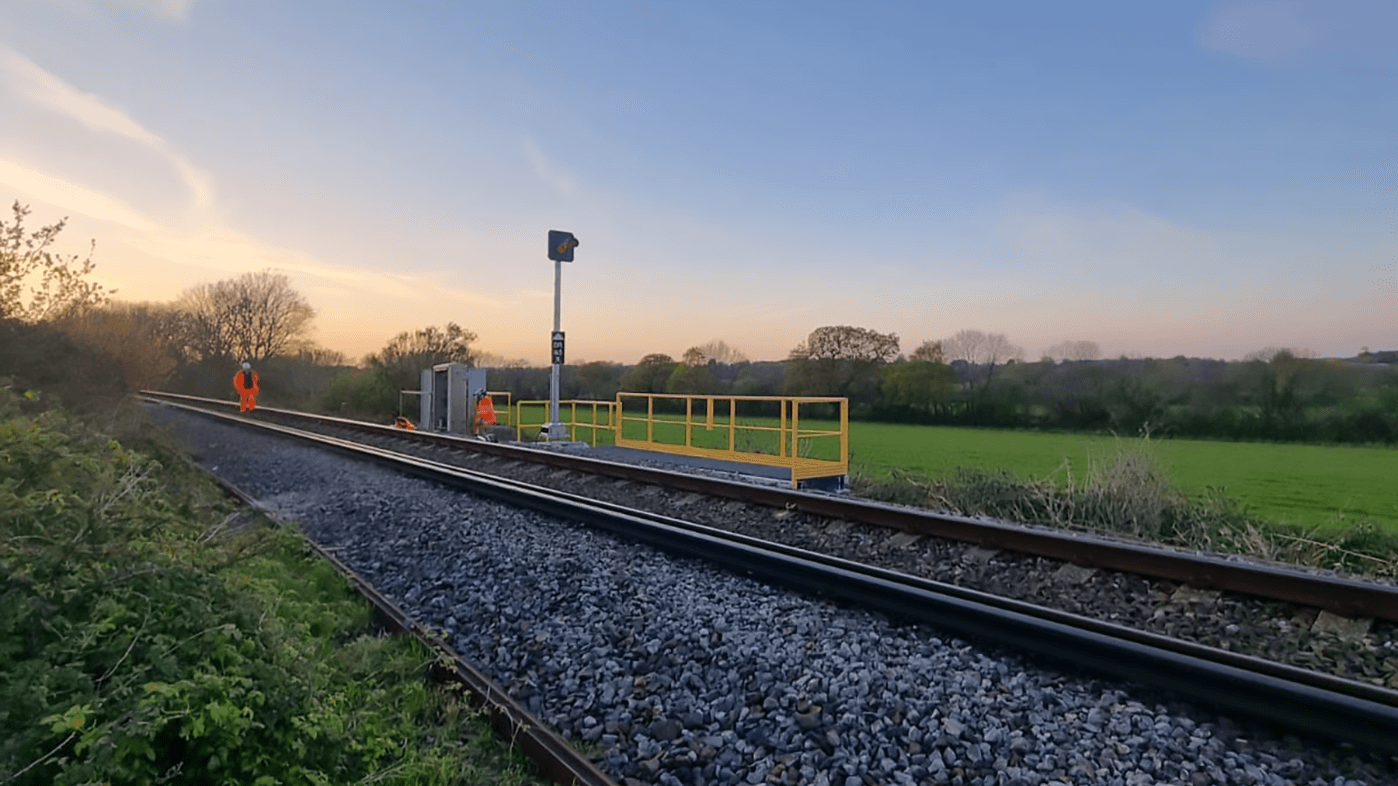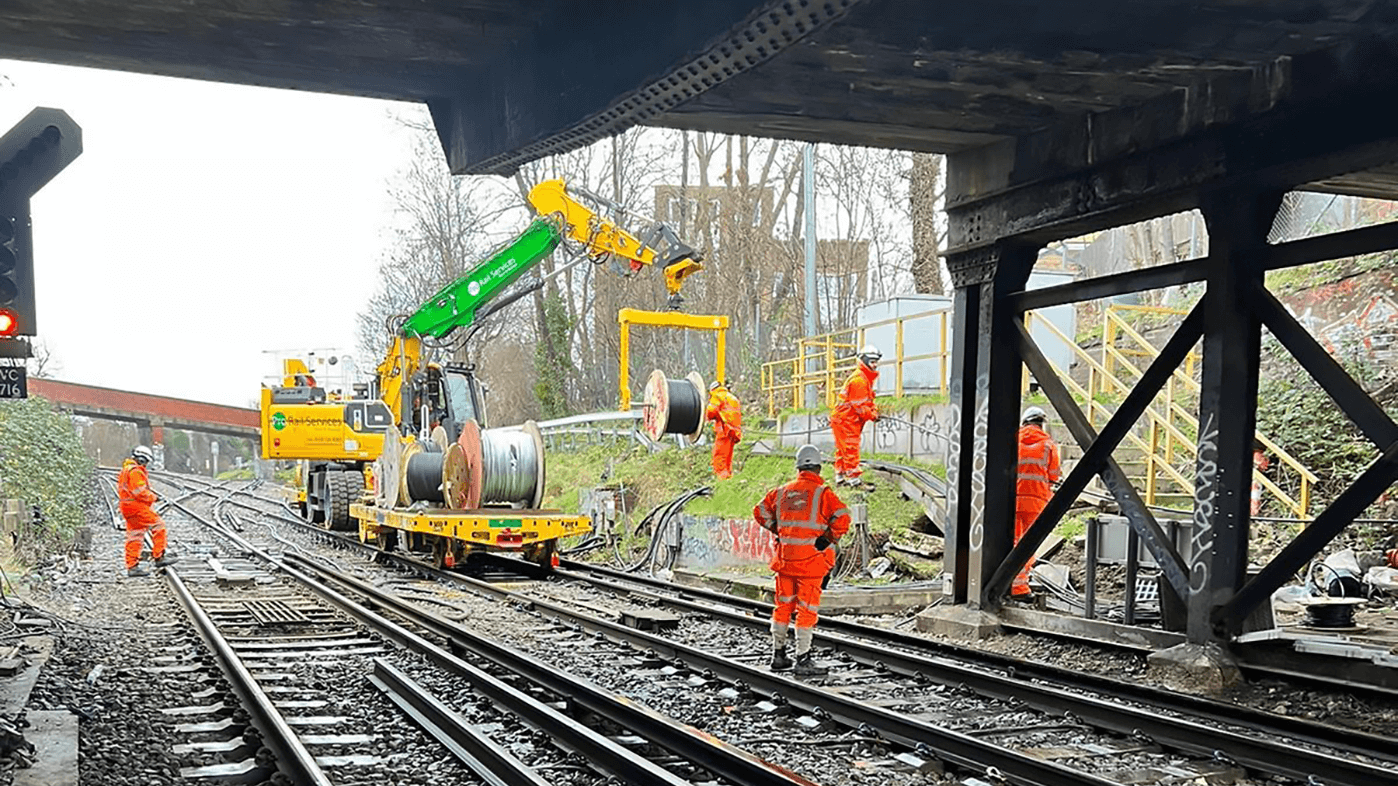The challenge
Responding to the ORR’s improvement notice I/20121220/JSM, 2023-2024 saw Amaro support Morgan Sindall in addressing the risks arising from the use of isolated Terra 650v systems, playing a key part in the renewal of the signal power distribution system between Bangor and Colwyn Bay.
The solution
Mobilising soon after contract award, in April 2023 Amaro’s project team began working alongside Morgan Sindall’s design specialist, Kilborn Consulting, providing attendance during the correlation surveys as well as providing constructability input to the design process. Following Network Rail’s approval of the signalling design just seven months later, a dedicated Amaro team (backed up by locally sourced third-party labour and safety critical support) hit site, charged with the termination, test, and commissioning works relating to 4 feeders spanning 30 miles around the Bangor to Colwyn Bay area.
Amaro was tasked with terminating a large quantity of recently pulled 650v signalling power cable into 60 newly installed FSPs, not to mention the pulling, tucking and terminating of approximately 11,000m of 2c 10mm B2 110v cable running from the newly installed FSPs to the associated 75 existing signalling location cases.
As well as the cable running and terminations, our remit also covered the installation of five moulded case circuit breakers or MCCBs (designed to interrupt and protect electrical circuits from overcurrent and short-circuits) into both Llandudno and Bangor relay rooms in order to facilitate the new network, with these works being split across two separate enabling stages.
Once all cable was run and terminated, Amaro’s E&P team carried out a programme of earth testing of earth mats and dead testing of all equipment, whilst our S&T team was responsible for carrying out the location case alterations needed to accommodate the changeovers.
With those works complete, pretesting was then carried out by Amaro’s new works testers to ensure that all installations had been carried out as per the AFC design, and that all equipment left redundant by the project scope was marked up ready for post-commissioning recoveries.
Whilst not initially forming part of our contract, following the recommendations of the AFC design, we were also tasked with the fitment of busbar insulation monitoring devices within any location case, REB or relay room positioned more than 10m from its respective FSP (54 in total), providing real-time voltage and resistance data back to Network Rail’s Intelligent Infrastructure system.
Following completion of these works in the summer of 2024, our teams began a 13-week process to migrate the location cases to the new 650v network, successfully commissioning and handing over the new and upgraded equipment during the following 11 stages:
- East Feeder Stage 1 (Week 09)
- East Feeder Stage 2 (Week 10)
- East Feeder Stage 3 (Week 11)
- West Feeder Stage 4 (Week 12)
- West Feeder Stage 5 (Week 13)
- West Feeder Stage 6 (Week 14)
- Deganwy Feeder Stage 7 (Week 15)
- Deganwy Feeder Stage 8 (Week 16)
- Bangor East Feeder Stage 9 (Week 17)
- Bangor East Feeder Stage 10 (Week 18)
- Llanfair Feeder Stage 11 (Week 21)
Following the commissioning of each full feeder, a number of tester-led teams carried out the recovery of all redundant 650v power cable, fuses, fuse holders, internal wiring and transformers.
The outcome
Prior to 2023 the sheer number of signalling faults being reported had led to an unacceptable level of delays for rail users, with the majority of these failures being due to life-expired equipment. Thanks to Morgan Sindall’s and our own involvement on this project, not only will passengers face fewer delays, Network Rail will experience a significantly reduced maintenance burden whilst rail workers will benefit from a considerably safer working environment.




